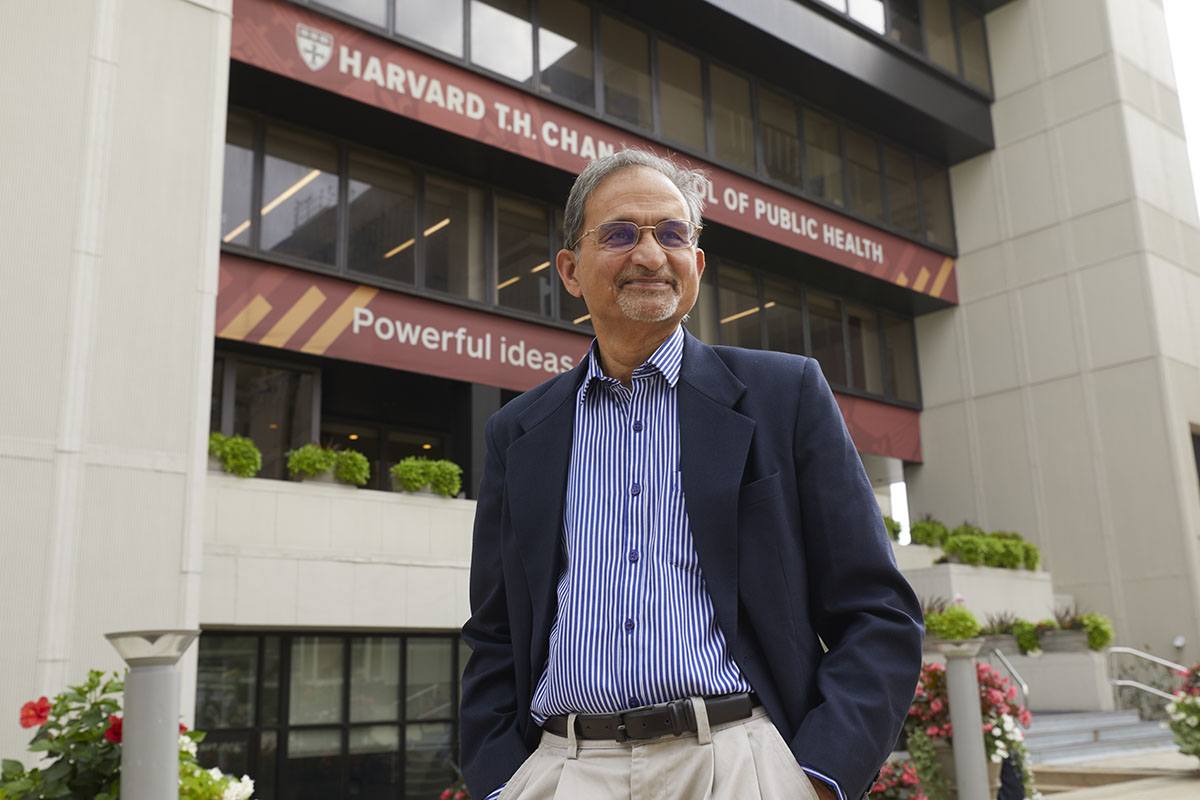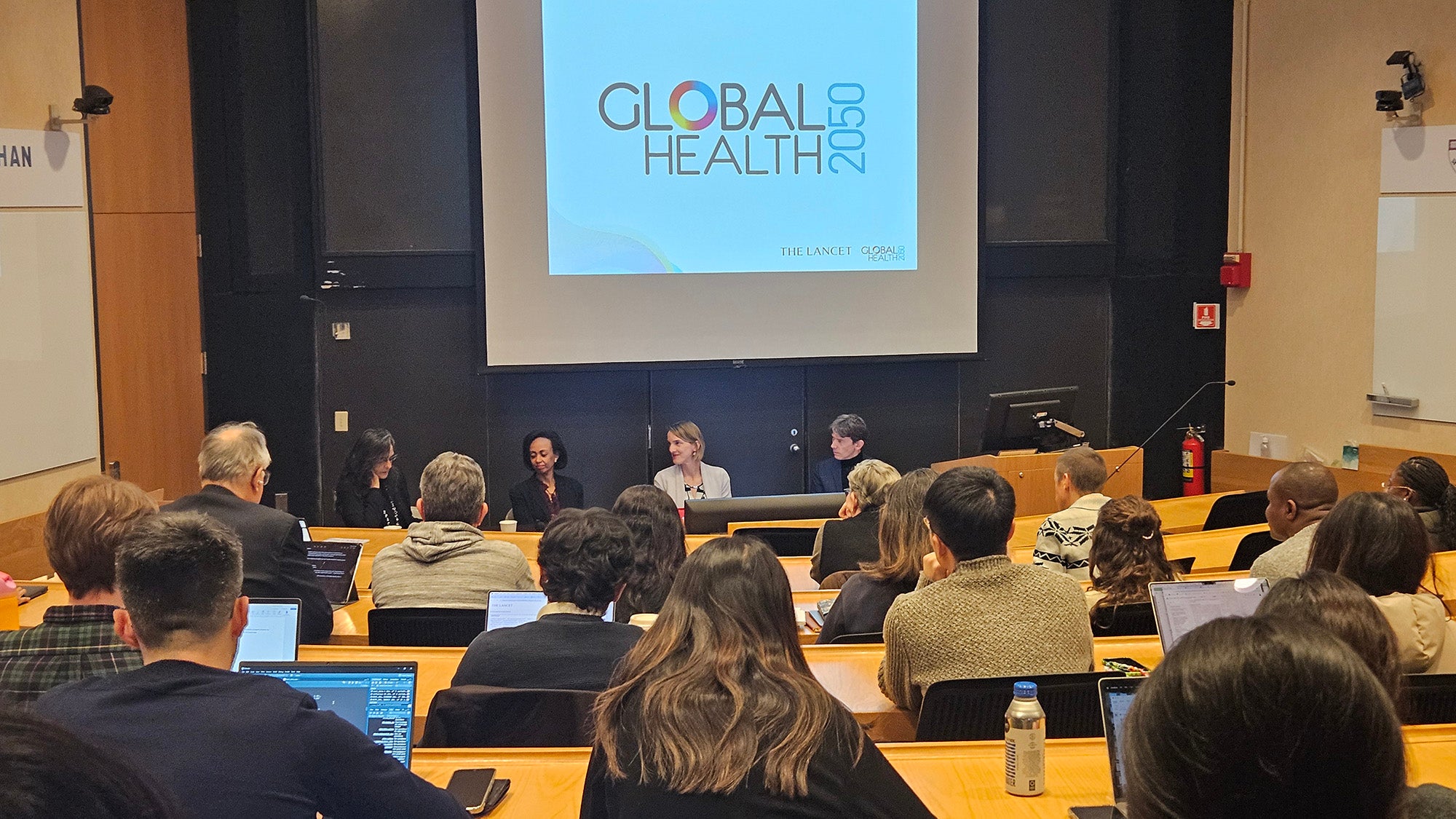Increasing investments in mental health benefits everyone

September 15, 2021—Shekhar Saxena, professor of the practice of global mental health at Harvard T.H. Chan School of Public Health, was a consultant for a new website called Vital Signs: The Campaign to Prevent Physician Suicide through his work with #FirstRespondersFirst. A psychiatrist by training, Saxena served in the World Health Organization (WHO) for two decades, including as a director of the Department of Mental Health and Substance Abuse. He discusses the widespread impact of the COVID-19 pandemic on mental health, and what can be done to support health care workers and others who are struggling.
Q: September 17 is National Physician Suicide Awareness Day. What is the scope of the problem and what is #FirstRespondersFirst doing to address it?
A: Physicians have one of the highest suicide rates of any profession. This was a crisis long before COVID-19, but the pressures of the pandemic—working in over-crowded emergency rooms, watching patients die isolated from their loved ones, contending with the politically charged atmosphere around public health measures—have increased the sense of urgency to better support physicians’ mental health and wellbeing. By helping produce the new website and campaign aimed at preventing physician suicide, #FirstRespondersFirst is raising awareness to help loved ones recognize the signs that a physician may be in distress, as well as providing resources that can help those in need.
#FirstRespondersFirst is a partnership between Harvard Chan School, Thrive Global, and the Creative Artists Agency that was launched early in the pandemic. Initially, the effort was focused on increasing access to personal protective equipment, but we soon realized that we needed to expand to address the very pressing mental health and wellbeing needs of frontline health workers. So, we have focused attention on providing tools to help people become more resilient, decrease stress, and be able to function in the most effective manner by looking after themselves over a sustained period of time.
Q: How has the COVID-19 pandemic affected the mental health of other populations?
A: All of us have been affected by the pandemic, even if we haven’t fallen ill ourselves or lost a loved one. There have been massive changes that all of us have been required to go through, whether it’s lockdowns, looking after children who can’t go to school, or working from home. These upheavals have been resulting in several classic reactions.
The first is anxiety. When you don’t know what’s going to happen next, and feel a loss of control, you feel anxious. This is the state we have all been running through for the last year and a half. Another common reaction is depression when we experience loss. There has been so much loss during the pandemic. It’s no wonder that incidence of anxiety and depression have increased almost four-to five-fold. We are going to have these problems with us for a long time.
The pandemic has increased awareness of mental health issues, but actions have not followed this awareness. There continues to be a very large gap between mental health needs and the attention devoted to addressing them.
Q: Over the course of your career, what changes have you seen in the ways that mental health issues are treated, and what else needs to be done?
A: Overall, I would say that the direction has been very positive, but progress is too slow and uneven. When I started working in mental health policy, I would get different questions from people in government than I do now. People now more widely understand that mental health disorders are real and that those who suffer from them can make sustainable improvements with treatment. We are now able to talk much more freely about mental health, although stigma still exists. What has not improved are the resources invested into treatment and prevention.
When it comes to mental health, all countries are developing countries. In the U.S., the mental health system is quite broken. For example, 50% of people with depression are not receiving care. There is so much to repair, reorganize, and reinvent. Yes, we do need hospitals, psychiatrists, and psychologists, but we also need communities that are able to provide care at the very inception of the problem, and to provide social services in other areas like education and labor.
I regard mental health as a continuum: from good mental health to some difficulties coping, to some symptoms, to a manageable disorder, to a crisis. During the pandemic, many people have moved farther along this continuum, which illustrates why we must consider mental health an issue that affects us all.
Throughout my career, I’ve always been very concerned with the disparities between physical and mental health care. How do we make our society realize that mental wellbeing is as important as physical wellbeing? This challenge is only going to become more urgent as we continue to face the stresses of COVID-19, racial disparities, and climate change. What drives me is the fact that change is possible. And if I can push a little more and make the change a little more realistic for at least a few people, I would feel the effort is worth making.
Photo: Kent Dayton


